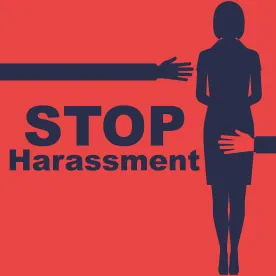On December 7, 2022, President Joe Biden signed the Speak Out Act, which bans the use of pre-dispute non-disclosure and non-disparagement contract clauses involving sexual assault and sexual harassment. The act applies to agreements between employers, current employees, former employees and independent contractors.
Championed by former Fox News correspondents Gretchen Carlson and Julie Roginsky - whose personal experiences with workplace misconduct inspired dramatic interpretations such as “The Loudest Voice” and “Bombshell” - the Speak Out Act passed the House with a 315-109 majority after unanimously passing the Senate in September. Proponents of the Speak Out Act view its passing as a victory for #MeToo advocates, survivors of workplace misconduct and others interested in creating more transparent work environment.
Although the act limits the use of non-disclosure and non-disparagement agreements applicable to sexual harassment and assault, it does not prohibit the use of these agreements completely. The Speak Out Act exclusively prohibits and nullifies pre-dispute non-disclosure and non-disparagement agreements and does not apply to post-dispute agreements. Accordingly, the act only applies to instances before a sexual harassment or sexual assault dispute arises. The act also does not apply to trade secrets, proprietary information or other types of employee complaints such as wage theft, age discrimination or race discrimination. Depending on applicable state laws, employers may also continue to utilize non-disparagement and non-disclosure clauses in furtherance of post-dispute resolution as provisions in a settlement agreement.
The Speak Out Act may impact employers’ new hire onboarding procedures, separation procedures and pre-dispute resolution strategies. Employers will no longer be permitted to require an employee to sign non-disparagement or non-disclosure agreements that prevent an employee from publicly discussing workplace sexual misconduct at the time of hiring or separation. Similarly, employers must act carefully before utilizing non-disclosure or non-disparagement agreements to mitigate possible exposure when resolving instances of potential misconduct that have not yet become a formal dispute.
Notably, the Speak Out Act does not formally define the term “dispute,” meaning it is still unclear what circumstances will trigger a “dispute” absent applicable case law. The Speak Out Act also does not prohibit a state or locality from enforcing a provision of state law governing non-disclosure or non-disparagement clauses that are at least as protective of the right of an individual to speak freely as provided in the Speak Out Act. Accordingly, employers in states such as California will continue to be restricted by state laws prohibiting confidentiality provisions in settlement agreements, which restrict an employee’s ability to publicly discuss allegations of sexual misconduct.
Given the impact the Speak Out Act may have on an employer’s risk management strategies, it is important to recognize how this will affect your business and work with your legal team to understand how to best protect your organization in the evolving landscape.





 />i
/>i
